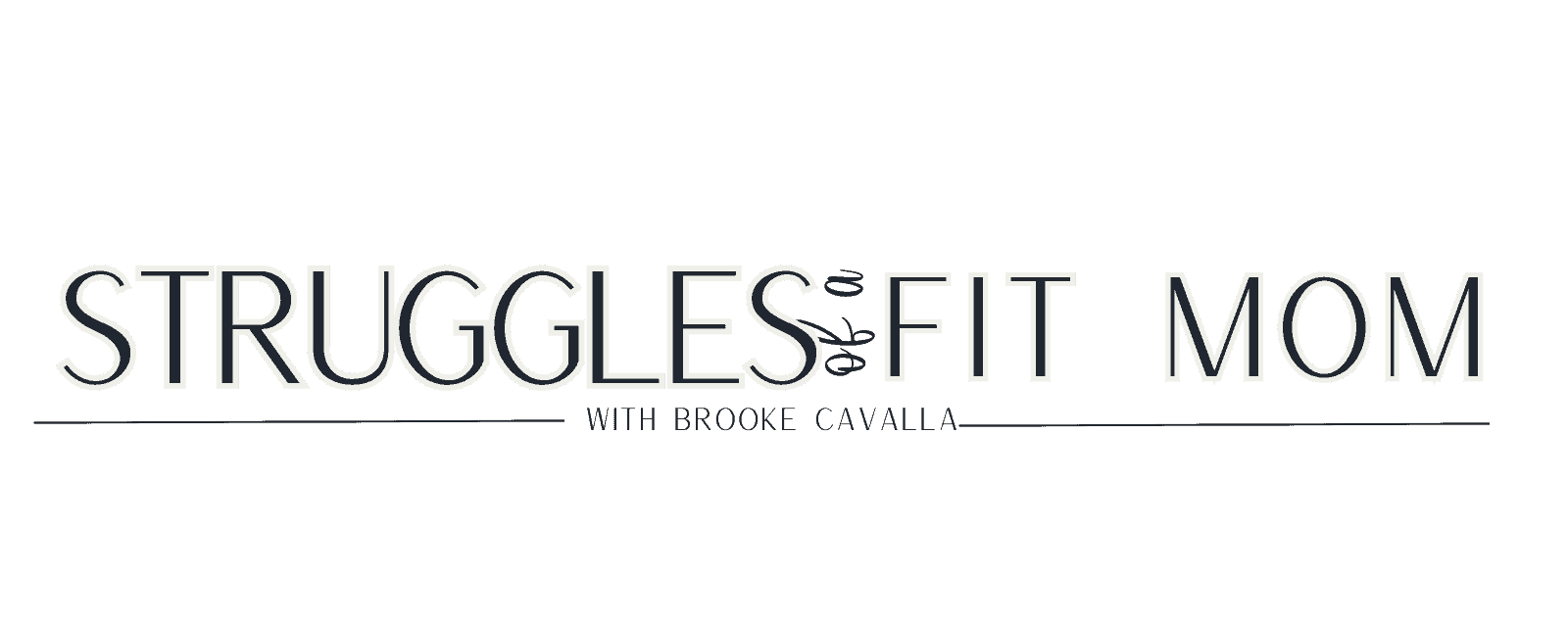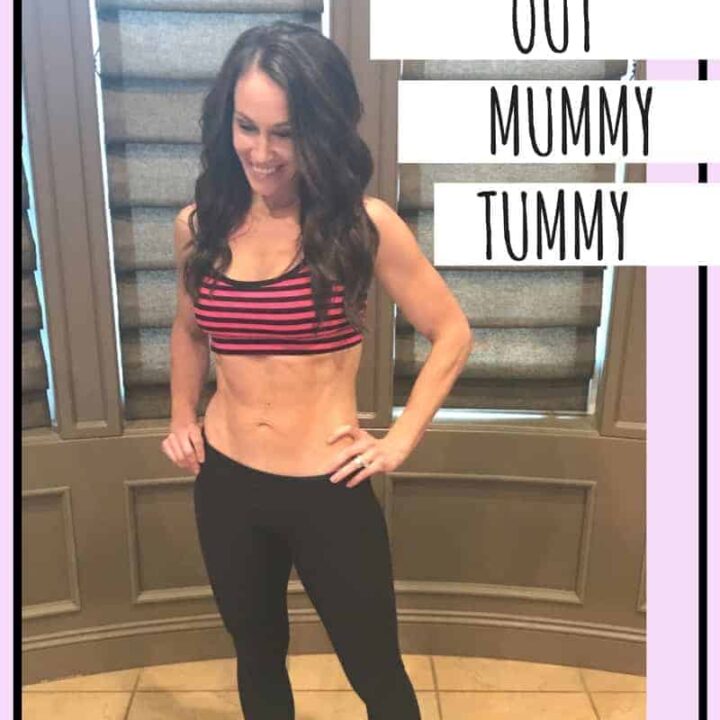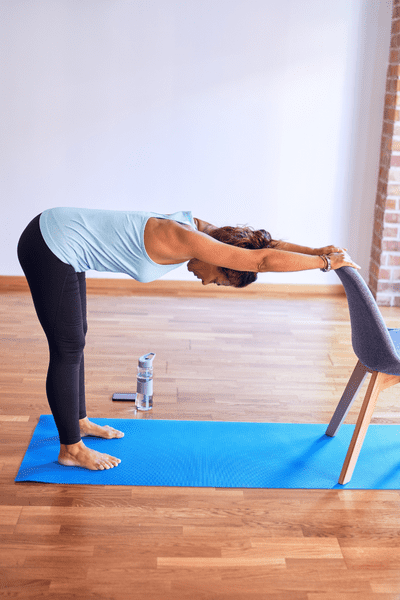10 Reasons To Use Collagen Protein For Postpartum Recovery
If you are struggling with joint pain, wrinkles or even postpartum recovery, collagen protein might just be your golden ticket to looking and feeling your best.
As a 35 year old mom of three under the age of four, let’s face it, my body is definitely feeling the affects of aging.
My joints are more achy, my hair is losing it’s vibrance and ugh, the wrinkles.
Finding something natural that I can incorporate into my daily routine to help with this natural aging process has been my mission.
Thats when I discovered collagen protein.
I don’t fall for health fads easily and the only supplements I take are protein powder, a multivitamin, fish oil and collagen protein.
However, collagen protein has been a game changer not only in my skin, hair and nails but it has also helped me reach greater fitness goals by reducing joint pain, healing my postpartum body and helping with muscle recovery.
I have continued taking it during my second and third pregnancy to help with joint pain, reduce/prevent stretch marks, and help with overall skin, nail and hair health.
I did get approval from my doctor so please consult with your physician before using any supplements.
To help share my enthusiasm with this vital protein, let’s first talk a little about what exactly Collagen is and what it does for our bodies, from the inside and out.
If you want to skip the science behind why collagen is beneficial, keep scrolling to the 10 benefits of taking collagen!
**Note: This article cites sources from scientific publications and is accurate to the best of my knowledge. However, the article itself has not been evaluated by the Food and Drug Administration and is not intended to diagnose or treat any disease.
Is collagen the new fountain of youth?
Could collagen protein possibly be the fountain of youth you’ve been looking for?
I am not a doctor or an expert but from both a research and personal perspective, I definitely believe it is something worth trying to help aging, mobility and overall health!
What is Collagen?
Collagen is the most abundant protein in your body making up about one third of the body’s total protein.
It is the building block of healthy joints, hair nails and skin.(1) This type of protein is essential for maintaining the normal structure, strength and integrity of connective tissue such as bones, skin, cartilage and blood vessels.
The word “Collagen” is derived from the Greek word “kolla” meaning glue. So, basically you can think of it as the “glue” that holds your entire body together. (2) This is why it is so important.
Collagen has actually been part of our diets for thousands of years.
Have you heard of homemade bone broths? This is one popular source of collagen and actually dates back thousands of years.
Bone broth is made with collagen loaded animal bones, skin and sometimes organs.
When cooked over time, the collagen is released from these parts creating a collagen rich broth.
If the richest sources of collagen comes from these animal parts, then it makes sense that adding collagen to our diets can help our own joints, skin and organs!
The jelly-like substance that most people scrape off the top of these homemade broths is loaded with collagen.
The downside of homemade broths, for some, is the time consuming process of making it and the taste. This is where taking a collagen supplement comes in handy.
If you are not a fan of the idea of consuming animal collagen in this form, you’re in luck, keep reading.
Related: The Ultimate Thick and Creamy Chocolate Peanut Butter Protein Shake
What does Collagen do in our bodies?
Collagen is what helps keep our bodies looking and running smoothly.
It also helps give our skin strength and elasticity as well as helps to replace dead skin cells.
In our joints and tendons, collagen is the “glue” that helps hold the body together and may help support healthy joint movement and function.
Types of Collagen
There are at least 16 types of collagen protein. However, 80-90 percent of the collagen in the body consists of types I, II and III. (3)
Let’s quickly look at the three most abundant types of Collagen in the body.
- Type 1 Collagen
Type I Collagen is the most common type found in the body. This type of collagen is extremely strong. It is important in would heal and gives skin strength and elasticity, something of which we lose as we age.
Gram for gram, type I collagen is stronger than steel. This is why we want to preserve and care for it. Strong skin, less wrinkles! (5)
- Type II Collagen
Type II collagen helps build cartilage which is found in connective tissue. (7)
Cartilage is an important connective tissue in the body. It is the fine, rubbery tissue that acts as a cushion between the bone of joints.
People with cartilage damage commonly experience more joint pain, stiffness and inflammation. (8)
- Type III Collagen
Type III Collagen is the major component of the interstitial fluid that makes up our organs and skin of muscles, organs and blood vessels. (9
Why do we need collagen?
As we age, our collagen production begins to decline which is why tendons, ligaments and skin firmness gets weak.
Lifestyle habits such as high sugar diets, excessive sun exposure and smoking can also contribute to the decrease in collagen production
After the age of 20, we produce about 1% less collagen in the skin each year.
Unfortunately, we can’t prevent this aging process.
However, you may be able to reduce the signs such as reducing joint pain and give more elasticity and strength to skin to minimize wrinkles by adding more collagen to our diets.
What happens when we produce less collagen?
The production of less collagen results in”
- More wrinkles
- Our skin becomes less firm and supple
- Nails become more brittle
- Hair becomes less vibrant
- Our joints become weaker and more achy due to the decrease in cartilage (3)
Adding Collagen to my routine has helped my achy joints and my hair has been growing like a weed.
Where does collagen come from?
Now that you have a better idea of what collagen is, let’s look at the different sources of where it comes from.
Remember, collagen is naturally produced in the body but as we age, we produce much less.
This is where supplementation is beneficial.
We can get some collagen from the foods we eat such as bone broth.
However, because the protein molecules are so large, it can be difficult for the body to digest and absorb effectively.
Collagen protein powder supplements, in the form of Collagen Peptides, are much easier to digest and more readily available for our bodies to use.
These peptides are naturally sourced from animals by cooking the bones, skin, and/or connective tissue. (10)
How can you get more Collagen?
The two best ways to increase your collagen are:
Bone Broth:
As I mentioned before, homemade bone broths are a great source of collagen. However, the taste and preparation can deter many people (like me) who are looking for the benefits of collagen.
Supplementation:
If bone broth doesn’t appeal to you, you’re in luck!
There are several other alternatives to getting the benefits of collagen including Collagen protein supplements.
I personally put two scoops of Collagen peptides in either my coffee or protein shake every single day.
Let’s quickly look a little deeper and the science behind the benefits of collagen.
10 Science backed benefits of Collagen Protein
1. Improve Skin Health and Elasticity
Now you know that collagen is a major component of your skin and plays a vital role in skin strength and elasticity.
So supplementing with collagen can improve the elasticity in your skin to help reduce the signs of wrinkles.
Less signs of wrinkles, yes please!
One study found that women who took a supplement containing 2.5-5 grams of collagen for eight weeks saw less skin dryness and a significant increase in skin elasticity compared to those who only took the placebo. (15).
Another study found that oral supplementation consisting of hydrolyzed collagen leads to significant improvement in wrinkle depth and showed noticeable improvement in skin elasticity and hydration. (16)
Increasing collagen consumption may minimize the signs of aging and even reduce wrinkles. (13, 14)
2. Stronger nails and more vibrant hair
The postpartum hair loss struggle was real!
I literally had bald patches around my hairline on my forehead after the birth of my first baby.
I started consistently taking collagen protein after the birth of my second baby and had little to no hair loss!
As a matter of fact, I noticed more hair growth.
Do you have a hard time growing out your natural nails?
Collagen may help with that too!
Oral supplementation with collagen may help prevent brittle nails, improve nail strength, as well as help with hair growth and luster. (17)
One study from the Journal of Investigative Dermatology suggested that Collagen could be a potential therapeutic target for hair loss and other skin related diseases. (18)
Both my hairs and nails have seen great improvement once I started adding collagen protein.
Coincidence? Maybe! Is it worth trying? I would say so! 
3. Collagen Protein May Help Relieve Joint pain
The connective tissue in our joints is composed of ligaments, tendons and cartilage, all of which are made from collagen. So it should come as no surprise that collagen plays a vital role in our joint health and integrity.
In one study, adults were given two grams of collagen daily for 70 days.
Those who took the collagen supplement had a significant decrease in joint pain and were better able to participate in physical activity than those who did not take it. (19)
Collagen may reduce parameters such as pain which typically has a negative impact on athletic performance. (20)
During pregnancy, our bodies release a hormone called “relaxin” which is meant to soften the pelvis for delivery. This is obviously fantastic except this joint softening hormone also softens ALL of our joints and can cause a lot of aches and pains, especially if you are active or on your feet a lot with kids or at work. Since taking Collagen Protein, I have had a drastic reduction in sever pain in my joints.
Again, coincidence? Maybe. Worth trying? Highly recommended!
4. May boost muscle mass and weight loss
Collagen makes up between 1-10% of your body’s muscle mass and therefore is necessary for keeping your muscles functioning properly and maintaining strength. (22)
Some studies have shown that taking collagen may also help promote the production of creatine which is necessary for muscle growth.
Muscle burns more calories at rest than fat so we definitely want to build and maintain as much muscle as possible, especially as we get older, to help to boost metabolism and burn more calories.
Collagen may also help to reduce joint pain which may help you to workout harder and therefore accelerate your weight loss and fitness goals.
5. May Reduce Cellulite and Prevent Stretch Marks
Although there is no concrete conclusion to the cause of cellulite or treatment, it is known that improvements in skin strength and elasticity are two important therapeutic aims in cellulite treatment.
One study (23) discovered that supplementing with hydrolyzed collagen over a period of 6 months led to clear improvement of the skin appearance in women with moderate cellulite.
Predisposition to stretch marks is mostly genetic and there are very few things that can reduce the chances of getting them.
I cannot claim that supplementing with collagen will prevent stretch marks but improving skin elasticity may help! Like I mentioned above, I took Collagen every single day during pregnancy and postpartum. I did not get any stretch marks. I cannot say for certain that this was due to taking collagen but I definitely think it is worth a try!
Related: 8 Easy Ways to Help Prevent Stretch Marks During Pregnancy
6. Collagen for Heart Health
Collagen provides the structure and support to your blood vessels and arteries which carry blood from your heart to the rest of your body. (23)
Without enough collagen, these arteries may become weak and fragile. Some research suggest that taking a collagen supplement may reduce the risk factors of heart-related conditions such as arteriosclerosis (hardening of the arteries) by helping the arteries stay clear of dangerous plaque buildup. (24)
7. May Prevent Bone Loss
Your bones are primarily made of collagen giving them strength and structure.
The decrease in collagen production as we age goes hand in hand with a decline in bone mass which may lead to osteoporosis.
Some studies have shown that taking a Collagen Hydrolysate supplement may have a positive therapeutic role in osteoporosis and osteoarthritis.
One study showed that supplementation with Collagen Peptides significantly increases bone mineral density in postmenopausal women. (28)
Collagen hydrolysate is of interest as a therapeutic agent in the treatment of osteoarthritis and osteoporosis due to its high level of safety. (29) More studies need to be done to confirm the role of collagen supplements in bone health but I find these studies to be promising.
Other possible benefits of Collagen Protein supplements may be:
8. Mental Health:
Some studies show that collagen may reduce anxiety and improve brain function.
9. Gut Health:
Taking collagen may be helpful in treating conditions such as leaky gut, IBS and overall improvement in digestion but more studies are required.
10. Hormone Balance:
Some studies show that taking a Collagen supplement may help balance hormones in your body such as cortisol (your stress hormones), and insulin. (30)
My favorite Collagen Products
If you’re curious about what types of collagen supplements are the most effective, here is why I use and love Vital Proteins.
I’ve researched and tried several different brands of collagen. This is by far the best one I have tried and seen the greatest results with.
Here is what I love about them:
- There are no fillers.
- They use a third party to test for heavy metals and microbiological components
- BPA free containers that seal out moisture to prevent contamination
- All products come from real food sources
- Gluten Free
- Whole 30 approved
- The customer service is AMAZING. They have answered all my questions very quickly and they are extremely professional
- Free shipping!!
Have you tried Collagen Protein? What have your experiences been?

Brooke is a certified Prenatal and Postnatal Exercise Specialist with a Bachelors of Science degree in Kinesiology-Exercise Science. She is also a mom of 3 girls with more than 15 years of experience in health and fitness. Brooke’s goal at Struggles of a Fit Mom is to help motivate, educate and inspire other busy mamas who struggle with finding time, energy and motivation to take care of themselves in the chaos of motherhood.









![Get Rid of Armpit Fat [The Ultimate Guide]](https://www.strugglesofafitmom.com/wp-content/uploads/2020/12/Untitled-design-15.jpg)
